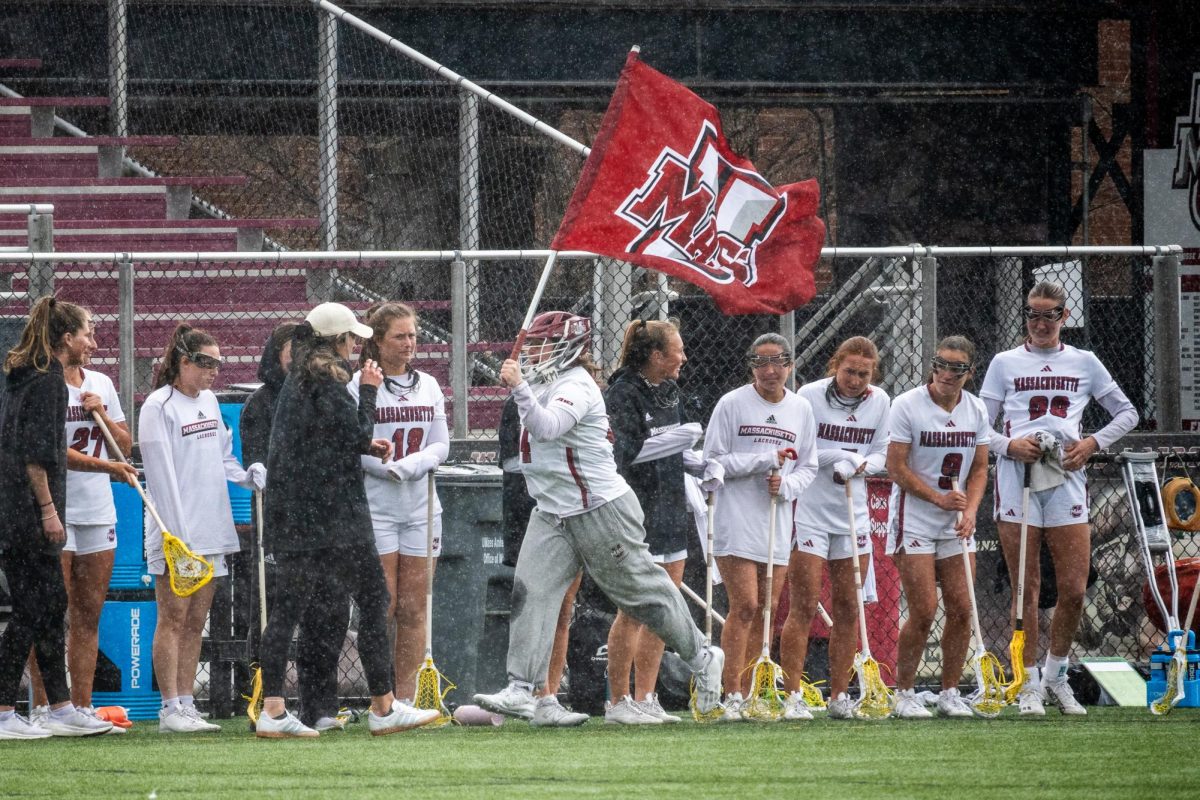As the Democratic and Republican presidential primaries get underway, it has become clear that Senator Barack Obama has tapped into a demographic full of young, enthusiastic and technology-savvy college students.
While other Democratic candidates have held up the usual strategies on the campaign and focused on the more predictable demographics, Obama has concentrated a large effort on appealing to younger voters. The 46-year-old Illinois senator worked up a challenge for young voters, urging them to become more involved in the political process.
Appearing on television shows like “Tyra” in his usual blue suit with no tie and advertising through text messaging and Facebook, the senator has become the most prominent Democratic presidential candidate on college campuses.
“He wants to be the president of the United States, which includes our generation,” Matthew Cadwallader, chapter coordinator of UMass for Barack Obama, said. “When the political pundits say young people don’t go vote and we do, he’s proving them wrong, and we’re proving them wrong along with him.” So far Obama’s strategy has worked to his advantage as his recent victory in South Carolina and an endorsement from Massachusetts Senator Ted Kennedy shows, along with the $32 million raised in January alone.
Once Senator Edwards dropped out of the race the Democratic nomination narrowed down before the Republican nomination. The Democratic Party continues to emphasize the change running rampant in politics, as the Democratic nominee most likely will be – for the first time -either a woman or an African American man. Obama and Senator Hillary Clinton of New York lead the voting for the Democratic nomination thus far.
It is this change in the demographics of the candidates that has come to the forefront recently. However, Clinton has taken some heat from critics as well as Obama supporters, which point to her candidacy as a continuation of the past 20 years, where the White House laid under control of either the Clinton or Bush family.
“There’s a lot to be said about the soft power image that comes from him,” UMass senior Peter Lukasik said. “I think we’re at a really pivotal point right now, and we need change. Hillary Clinton’s nomination would be a regeneration of the 1990s.”
With this campaign for change, Sen. Obama has consistently concentrated a good portion of his efforts on reeling-in younger voters.
Though Sen. Obama is accused, at times, by Sen. Clinton of being overly optimistic and untested, his success among young voters remains strong. He is still found to be the most approachable by many Democratic college students.
“[Sen. Clinton] seems to count her time as first lady as experience. That calculus doesn’t work in my book,” Lukasik said.
Throughout the campaign other candidates in the Democratic Party pointed at the senator’s record saying his experience in national politics is not long enough. Sen. Obama has pointed out his consistency on issues like the war on Iraq, which has been plaguing Clinton since the beginning of her campaign and has proven to be the issue that just will not die. For Obama supporters though, the fact that he doesn’t have the amount of experience as the other candidates is a plus.
At the last Democratic Debate held at the Kodak Theater in California last week, which will be the last one-on-one before Super Tuesday, it was hoped that the differences between the candidates would become clear.
One issue that did mark a difference was Sen. Clinton’s vote for Iraq, which resurfaced again during the debate.
“I was opposed to Iraq from the start,” Obama said. “And I say that not just to look backwards but to also look forwards because I think what the next president has to show is the kind of judgment that will ensure that we are using our military power wisely.”
Other questions worked around the differences in policy between the two remaining candidates. Though both acknowledged there are significant differences in their strategies to work with things like healthcare, they emphasized there was a much greater difference between the Democratic and Republican policies. One of the differences between the two lies in the approach to healthcare. Whereas Clinton is working toward a mandate for universal healthcare, Obama believes that if healthcare becomes affordable, people will buy it voluntarily.
His plan would lower premiums by $2,500 per family, per year and includes a mandate for children. His healthcare system would also cover people aged under 25, which he refers to as “young people who are healthy but think they are invulnerable,” as they would be covered under their parent’s healthcare.
“I’ve met people that have premiums so high they don’t have health insurance, they have house insurance,” Obama said.
One of the problems pointed out with Sen. Obama’s healthcare plan is the free rider problem that arises from the voluntary component of his strategy. Because the tax payer would end up paying for the people who decline to pay for insurance when they become sick and need healthcare under his system the senator created a plan where these people would need to pay back premiums.
The Obama campaign also has used a technology-savvy youth to not only tap into a new electoral demographic but also to send the word out to the older generations. Back in July, the senator was the first to take the stage when the College Democrats had their national convention. ” In this election, it’s our turn. It’s your generation’s turn,” Obama said at the University of South Carolina. “Let’s bring a new generation of leadership to America.”
Obama’s campaign revolves about change not just of the political strategies but also of a change of regimes of generational leadership. His campaign has worked around generating a fresh, young image around the senator. With the release of his book “The Audacity of Hope,” his mixed heritage and his early admissions to having tried marijuana, he has become the presidential candidate that exudes hope and change.
Senator Obama’s strategy has worked consistently to his advantage starting at the Iowa and New Hampshire caucuses. The passing of the torch strategy is not entirely new however. John Kennedy was 43 when he was elected president, just three years shy of Obama’s current age. During that campaign the former president played up his youth in comparison to the older leaders of the nation.
By using an old and long forgotten political strategy Sen. Obama has successfully tapped into the youth of the electorate and moved to prove Washington can be led by more than just the good ole’ boys. Michelle Osorio can be reached at [email protected].






